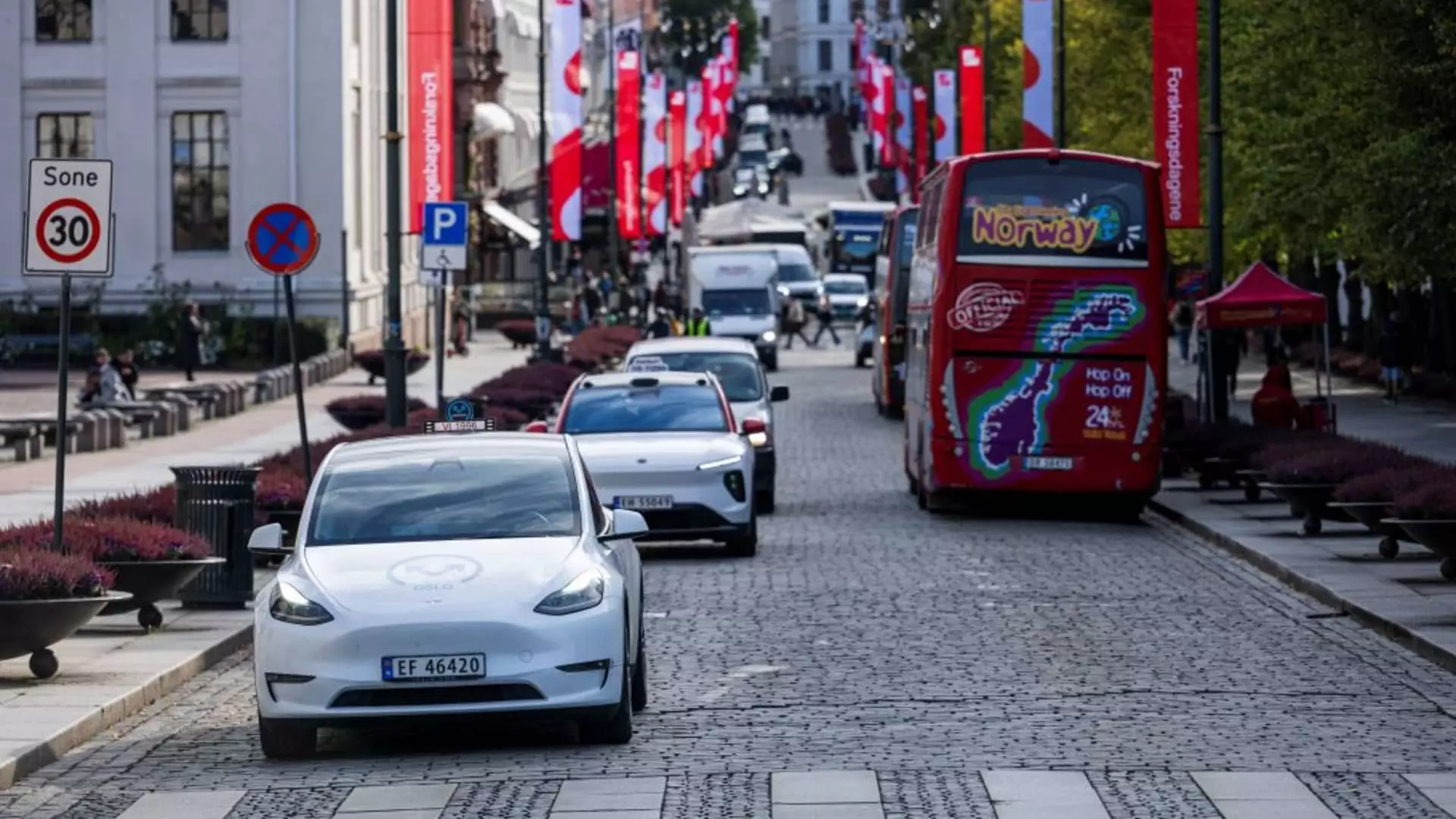Tesla Inc., once hailed as the cornerstone of the electric vehicle (EV) revolution, saw its stock plummet approximately 5% on a recent Monday following the announcement of significant tariffs introduced by President Donald Trump on imports from China, Canada, and Mexico. This decline cannot be viewed in isolation, as it mirrors a series of evolving challenges facing the company, including faltering vehicle registrations in key European markets and heightened production demands.
The ramifications of President Trump’s new tariffs are particularly concerning for Tesla, given that around 50% of its vehicle production occurs in China. The imposition of a 10% tariff on goods from this significant manufacturing hub not only threatens to burden Tesla’s operational costs but may also influence the broader EV market. During a recent earnings call, Chief Financial Officer Vaibhav Taneja acknowledged these concerns, stating that the company has worked tirelessly to localize its supply chain. However, he admitted a strong reliance on global parts distribution remains: “The imposition of tariffs would have an impact on our business and profitability.” This statement underscores the precarious balance Tesla must maintain between expanding worldwide and managing the intricacies of international trade.
Beyond the immediate effects of tariffs, Tesla is grappling with troubling figures regarding vehicle registrations in Europe, particularly in France, Sweden, and Norway. The company noted a staggering 63% decline in registrations in France for January compared to the previous year, a figure starkly high in contrast to the general automotive market. In Sweden and Norway, the decreases of 44% and 38%, respectively, further illuminate a potential shift in consumer preferences or market dynamics. This decline in market traction within Europe, a crucial market for EVs, raises critical questions about the long-term sustainability of Tesla’s sales strategy in the region.
In a bid to revitalize interest in its vehicles, Tesla revealed over the weekend that it had slashed lease prices for its base Model 3 sedan and its much-anticipated Cybertruck. Such moves suggest a recognition of market pressures, but can lower pricing ultimately benefit the brand’s value? Independent analyst forecasts, especially those shared by a researcher known as “Troy Teslike,” paint a grim picture for the Cybertruck, predicting only about 21,000 units to be sold by 2025. The striking revelation that Tesla ended 2024 with over 10,000 unsold Cybertrucks is indicative of a significant misalignment between production capacities and market demand, a situation that underscores the importance of robust demand forecasting.
Complicating these business hurdles is Tesla’s interplay with the political sphere. CEO Elon Musk’s substantial financial backing for Trump’s reelection campaign—and his recent endorsement of Germany’s far-right Alternative for Germany (AfD) party—may have repercussions on Tesla’s brand perception. In 2024, Brand Finance estimated a 26% decline in Tesla’s brand value, suggesting that political affiliations could potentially alienate segments of its customer base, thereby impacting sales adversely. This connection highlights the intricate relationship between corporate identity and political association in the age of social media, where brands are not just judged by economic performance but also by their ethical standpoints and affiliations.
In light of the multifaceted challenges Tesla faces—including political uncertainties, international trade issues, and fluctuating European market dynamics—strategic reassessments are imperative. Fostering more robust local supply chains and diversifying production locations may serve to mitigate risks associated with tariffs. Moreover, the company must re-evaluate its sales and marketing strategies in Europe to recover from the recent registration declines.
Ultimately, while Tesla has revolutionized the automotive industry in many ways, it now stands at a crossroads where concerted efforts to navigate complex global economics and consumer dynamics are crucial. The future hinges on Tesla’s ability to adapt flexibly to these impediments while maintaining its innovative posture within a fiercely competitive market.

